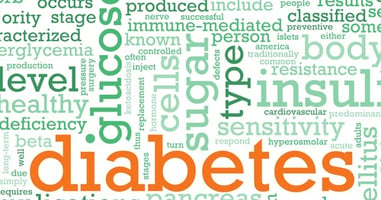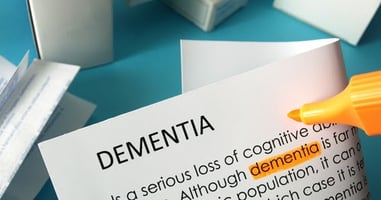Individuals with diabetes who also have depression have a greater risk of dementia than do diabetes...
Concept of 'Preaddiction' Could Lead to Early Intervention for Possible Substance Use Disorder

About 20 years ago, diabetes care changed when an organized effort was made to identify patients at risk of diabetes earlier and connect them with treatment. A similar strategy could be used within the substance use disorder (SUD) field by using the term “preaddiction,” advised A. Thomas McLellan, Ph.D., George F. Koob, Ph.D., and Nora D. Volkow, M.D., in a Viewpoint piece published yesterday in JAMA Psychiatry.
“Addiction is the most severe form of a full spectrum of substance use disorders,” the authors wrote. “It has been the almost exclusive focus of U.S. clinical and policy efforts. However, serious addiction only results after years of unhealthy substance misuse that could be identified and managed much earlier.”
McLellan is the co-founder of the Treatment Research Institute, Koob is the director of the National Institute on Alcohol Abuse and Alcoholism, and Volkow is the director of the National Institute on Drug Abuse.
The transition from using a substance to developing a substance use disorder is usually slow and variable, the authors wrote. “[T]he DSM-5 uses 11 equally weighted symptoms of impaired control to define SUDs along a three-stage severity continuum,” they continued. Severe SUDs, commonly referred to as addiction, are defined by six or more symptoms and found in only 4% to 5% of adults, while mild to moderate SUDs are defined by two to five symptoms and found in about 13% of adults. “However, treatment efforts and public health policies have focused almost exclusively on those with serious, usually chronic addictions, virtually ignoring the much larger population with early stage SUDs,” the authors wrote.
When faced with a similar problem, the American Diabetes Association suggested the term prediabetes in 2001, defined by elevated scores on two laboratory tests (impaired glucose tolerance and impaired fasting glucose). Advertising campaigns that followed to raise public awareness and partnerships with insurers led to the creation of new medications, testing, and interventions. If a similar approach were taken in the SUD field using the term preaddiction, McLellan, Koob, and Volkow wrote, it would require a similarly integrated effort in three areas, including the following:
- Establish measures to define and detect preaddiction: DSM-5 diagnoses are reliable and could be implemented in clinical settings to define preaddiction.
- Identify effective interventions: Screening, brief interventions, referrals to treatment, and a computerized version of cognitive-behavioral therapy could potentially be used as preaddiction interventions. However, the authors also pointed out the need for a broader range of medication treatments and social support.
- Advocate and educate: Few in the public or even in medical practice know how to recognize or what to do when an individual begins to transition to an SUD, and procedures for screening and tracking early stage SUDs must be taught in medical or nursing schools and properly reimbursed.
The authors acknowledged that some may be concerned that the term preaddiction could intensify stigma, yet they contend that it is exactly the right term to use for two reasons. First, preaddiction refers to the disease, not the individual. “Second, the term addiction is well understood by clinicians and patients as a serious condition to be avoided,” the authors wrote. “Thus, preaddiction has inherent motivational properties that convey the need for clinical action and patient change—just as prediabetes and precancerous currently do.”
For more information, see the Psychiatric News article “The Perils of a Pandemic: Challenges Faced by Addiction Services.”
(Image: iStock/monkeybusinessimages)
APA Online Systems Upgrade July 8-10, Password Reset Required
APA is upgrading its member portal (my.psychiatry.org), which is used to log into many connected APA websites. Information about this transition is available on this web page. Several APA systems will be unavailable during maintenance on July 8 through July 10. All members and APA website users will need to activate their accounts and set a new password. Going forward, the username you use to log into the system will always be the same as your primary email address on file. If you do not see an email by July 12, you may proceed to my.psychiatry.org and click “Forgot Password?” If you have forgotten your username, contact apa@psych.org or call APA Customer Service at 202-559-3900.





